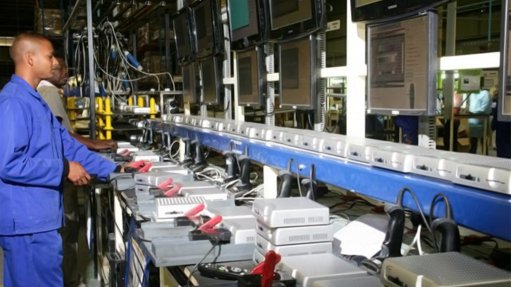
The opportunity to manufacture set-top boxes (STBs) in South Africa would “transform” the country, paving the way for the creation of job opportunities and making labour markets more “innovative, inclusive and global”, the National Association of Electronic Manufacturers (Namec) said over the weekend.
The newly awarded tender for the STBs required for South Africa’s digital terrestrial television (DTT) migration project would provide the platform for the development of small and medium-sized enterprises (SMEs), Namec secretary-general Adil Nchabeleng said in a statement.
His comments emerged soon after the Universal Services and Access Agency of South Africa’s selection of 26 organisations to manufacture the five-million government-subsidised STBs in a contact valued at R4.3-billion.
Ellies; Temic; Trafalgar Electronics; Namec; Namec Western Cape; Namec Microtronix; CZ Electronics; Seroma Mowa; Altech; Divtech; African Digitech and Tellumat were among the winning bidders of the tender.
The other companies that had secured a piece of the tender were QEC; Worldtel; ABT Africa; Vektronix; Kopano Digital; Sifikile; Lamec; Equiton; Meso Systems; Siyeza Suppliers; Leratadima; Maredi Telecoms; Baberiki; and Phahama.
The development and manufacturing of the STBs would create new opportunities for SMEs, which were expected to create 90% of the jobs required to meet the National Development Plan’s objective of 11-million jobs by 2030.
“DTT will be influencing employment both as an industry that creates jobs and as a tool that empowers workers to access new forms of work, in new and more flexible ways,” he added.
“To maximize the positive impact of DTT on employment … policymakers [must] pay attention to creating an enabling environment, support the local economy through manufacturing and embrace the policy of set-aside procurement as a direct intervention to implement radical economic transformation of South Africa,” Nchabeleng concluded.